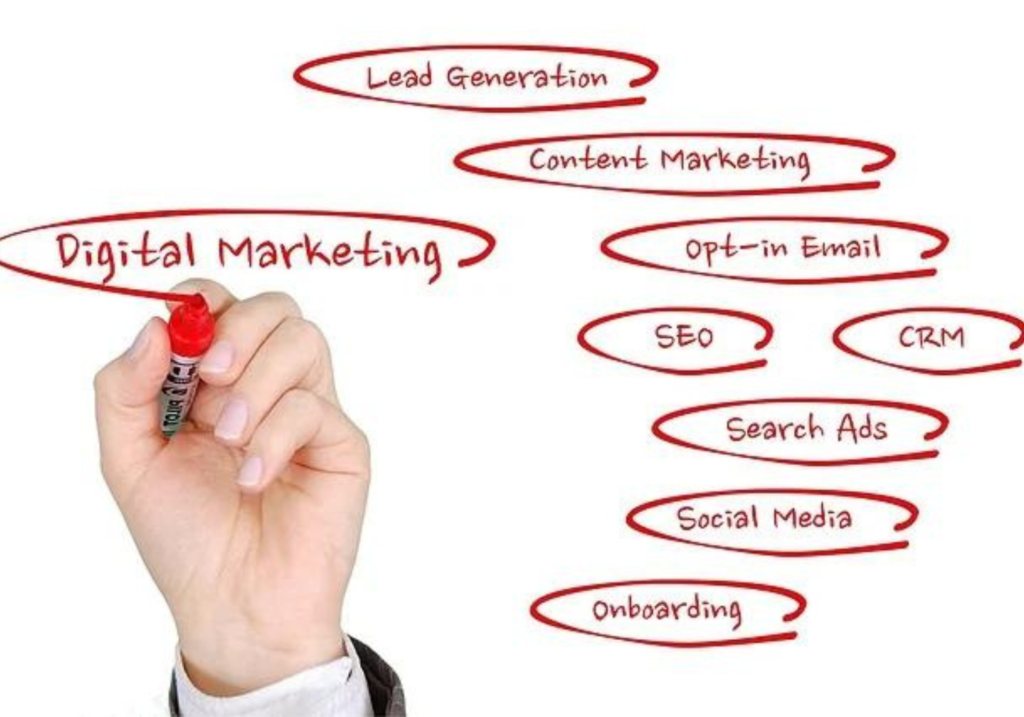What is Social Media Marketing?
In today’s digital world, social platforms have become central to the way we connect, share, and consume information. Social media marketing (SMM) refers to the use of social platforms to promote products, services, and brands, engaging with users and building meaningful relationships. It goes beyond simply posting updates; it’s about crafting a strategic approach that includes creating engaging content, fostering conversations, and leveraging the strengths of various platforms to meet business goals.
Whether you’re a small business or a large corporation, engaging with customers and building a community is essential. Social media marketing allows companies to reach a global audience, personalize interactions, and adapt quickly to changing consumer behavior.
The Importance of Social Media Marketing
The digital landscape is vast, but social media offers a unique opportunity for brands to stand out and make lasting impressions. Here’s why social media marketing is more crucial than ever:
1. Direct Communication with Your Audience
Platforms like Facebook, Instagram, and LinkedIn allow businesses to communicate directly with their customers. This direct interaction enables brands to understand customer needs, address concerns, and build trust. Through two-way communication, businesses can engage users in real-time, leading to improved brand loyalty.
2. Expansive Reach with Minimal Investment
Traditional advertising often comes with high costs and limited reach. Social platforms, on the other hand, offer extensive global reach for a fraction of the cost. Organic content can go viral, extending your reach far beyond what’s possible through traditional means, while paid ads on platforms like Twitter and Instagram offer precise targeting at reasonable rates.
3. Reputation Building
A brand’s online presence significantly influences its reputation. Social media serves as a platform where businesses can showcase their values, respond to feedback, and humanize their interactions with customers. The transparency offered by social marketing helps build a trustworthy image, which is critical for long-term success.
Key Benefits of Social Media Marketing
There are numerous advantages to investing in social media as part of your marketing strategy. Let’s dive into some of the most impactful benefits that businesses can reap from these platforms:
1. Boosts Brand Awareness
Creating an effective social strategy can increase brand recognition, making your products or services more familiar to potential customers. The more people engage with your content, the more they’ll remember your brand. It’s not just about attracting new customers—staying active on social media helps keep your existing audience engaged.
2. Improves SEO and Online Visibility
While search engine optimization (SEO) and social media are different marketing tools, they complement each other. Active engagement on social media can enhance your site’s visibility, as search engines favor websites with strong social signals. Regularly sharing quality content across platforms like Facebook or LinkedIn can increase backlinks and website traffic, improving your search engine ranking over time.
3. Enhances Customer Insights
One of the most valuable aspects of social platforms is the data they provide. From engagement metrics to follower demographics, social analytics offer deep insights into customer behavior. Understanding what content resonates with your audience helps tailor future marketing efforts, ensuring that your messaging aligns with their needs and interests.
4. Cost-Effective Advertising
Social media ads can be tailored to specific demographics, interests, and behaviors, making them highly effective for targeting the right audience. Unlike traditional advertising, which can be expensive and generalized, social platforms allow for precise audience targeting, ensuring that your marketing budget is spent efficiently.
5. Fosters Community Engagement

People no longer want to interact with faceless brands. Social media gives companies a voice and allows them to build a community around their products or services. Whether through Instagram stories, Twitter threads, or Facebook groups, brands can engage in real-time with their audience, fostering stronger connections and deeper relationships.
How Social Media Marketing Helps Businesses Thrive
For any business, large or small, leveraging social media is a powerful tool for growth. From increasing customer loyalty to driving sales, here’s how businesses benefit from a strong social strategy:
1. Customer Retention
Staying top of mind is crucial for customer retention. By regularly engaging with your audience on social platforms, businesses can remain relevant and increase customer loyalty. Consistent interaction, helpful tips, and showcasing company values keep customers coming back.
2. Increases Conversions
The personalized nature of social media interactions leads to higher conversion rates. Personalized marketing, such as one-on-one interactions, tailored ads, and exclusive offers, encourages potential customers to act. Whether they’re making a purchase, subscribing to a newsletter, or following your page, effective social engagement can turn followers into customers.
3. Provides Real-Time Feedback
Customer feedback is invaluable for any business, and social platforms allow brands to receive feedback in real time. Whether positive or negative, this feedback helps businesses quickly adapt to customer needs, tweak products, and improve service offerings.

Jobs in Social Media Marketing
As businesses increasingly recognize the importance of digital marketing, job opportunities in the field have skyrocketed. The demand for skilled professionals in social media marketing continues to grow, offering a range of exciting career opportunities. Here are some of the top roles in the industry:
1. Social Media Manager
A social media manager oversees a company’s online presence across platforms. Their duties include creating content, scheduling posts, responding to followers, and tracking engagement metrics. They ensure that the brand’s voice is consistent and that campaigns align with broader marketing strategies.
2. Content Strategist
Content strategists are responsible for planning and creating the content that resonates with a brand’s target audience. They work closely with other teams to develop engaging stories, videos, images, and posts that help a company achieve its marketing goals.
3. Community Manager

Community managers build and maintain relationships between brands and their online communities. They focus on encouraging discussions, addressing queries, and ensuring that followers feel valued and heard. Their role is to nurture a positive community environment that fosters loyalty and trust.
4. Paid Media Specialist
A paid media specialist focuses on managing social media advertising campaigns. From crafting engaging ads to setting budgets and targeting specific audiences, they optimize campaigns to deliver the highest return on investment.
5. Social Media Analyst
Social media analysts track performance data from various platforms to measure the success of campaigns. They analyze metrics such as likes, shares, comments, and website traffic to offer insights into what’s working and what isn’t. Their work helps refine future marketing efforts, making them more data-driven and effective.
6. Influencer Marketing Specialist
With the rise of influencers on platforms like Instagram and YouTube, companies are increasingly partnering with influential personalities to reach their target audience. Influencer marketing specialists manage these partnerships, identifying suitable influencers, negotiating deals, and tracking the success of collaborations.
